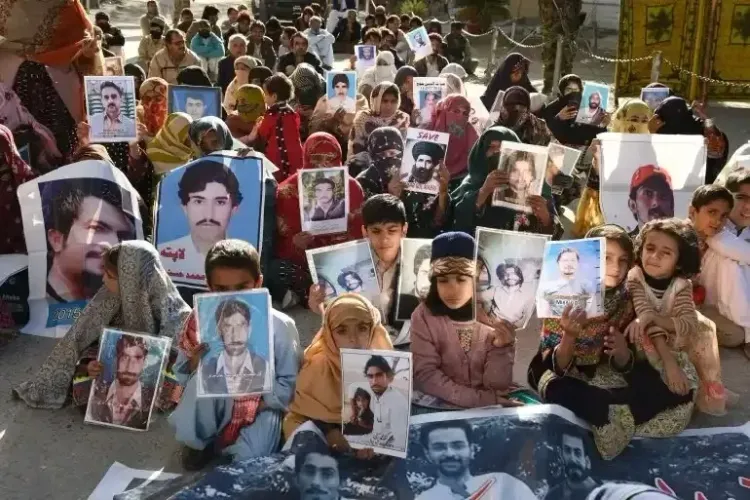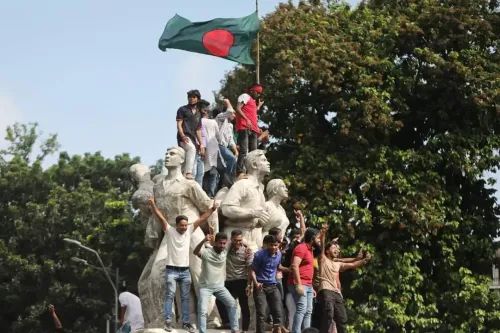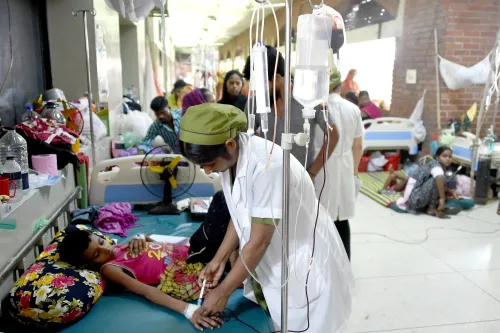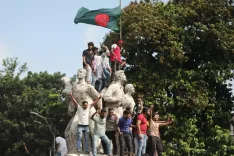Is the Pakistan Government Intensifying Forced Disappearances in Balochistan?

Synopsis
Key Takeaways
- Forced disappearances are escalating in Balochistan.
- The Baloch National Movement's Human Rights Department reported multiple new cases.
- Victims are often taken without legal procedures.
- International pressure is needed to address these human rights violations.
- The situation reflects a systemic issue within the region.
Quetta, May 19 (NationPress) A human rights organization has vehemently criticized the escalating trend of forced disappearances in Balochistan, labeling it a crime against humanity.
The Baloch National Movement's Human Rights Department, Paank, announced on Monday that seven additional Baloch individuals were forcibly taken by Pakistani security forces in Balochistan.
In a series of incidents reported throughout May, the organization stated that on Sunday, Waqas Baloch, the son of Wazeer Khan from the Killi Sheikhan area in Mastung, was forcibly apprehended by the military.
“On May 18, 2025, Naveed Baloch, son of Izzat Baloch from the Jimuri area in Pasni Tehsil, was also forcibly disappeared by Pakistani forces. Furthermore, on the same day, Advocate Chief Atta Ullah Baloch, son of Saleh Muhammad Shad, was taken from his residence in Killi Shadi Khan, Mastung,” the statement from Paank indicated.
The organization also reported that on May 16, Pakistani officials summoned Shah Nawaz Baloch, son of Barpi, and his father to military camp Nali. While his father was allowed to leave, Shah Nawaz was illegally detained and has since vanished.
In another occurrence on May 17, Ameen Ullah Baloch from Naseerabad was forcibly disappeared in the Shaikhari area of Kalat. The same day, a 13-year-old boy named Fiaz Ali, also from Naseerabad, went missing.
Moreover, the previous Saturday, Niaz Ali, a landlord from Naseerabad, was taken against his will in the Shaikhari area.
Last week, Paank disclosed that from April to May, five additional individuals were forcibly disappeared across various districts in Balochistan, highlighting an ongoing environment of fear, impunity, and state repression in the region.
“Victims are routinely taken without any legal procedures, warrants, or due process, leaving families in distress with no updates on their loved ones' statuses,” the organization emphasized.
“The practice of enforced disappearances should be acknowledged as a crime against humanity, and those responsible must face accountability under international law,” they asserted.
Paank urged international human rights organizations, including the United Nations Working Group on Enforced or Involuntary Disappearances, and the global community to exert pressure on Pakistan to promptly release all forcibly disappeared individuals and cease its oppressive actions in Balochistan.
The human rights organization underscored that these occurrences indicate a wider, systemic approach to enforced disappearances that persists without interruption in Balochistan.









